This marked an important milestone in the evolution of the Amazing Women in eCommerce (AWIE) program. Though we’ve been celebrating exceptional women in our industry for the past two years, the luncheon was our first-ever live event dedicated to honoring our nominees. What’s more, in the true spirit of AWIE, the luncheon was produced, organized, and executed by 14 women from Yotpo’s Marketing team.
As honorees and their guests mingled, posed for photos, and enjoyed great food, we kicked off the official program for the day. AWIE Event Manager Ruthie Berber began by introducing our 2020 Honorees. Of the 1,297 women nominated, the 20 diverse women selected include eight founders and co-founders, six mothers, one Ph.D, four Glossier fangirls, and 13 active supporters of diversity and inclusion.
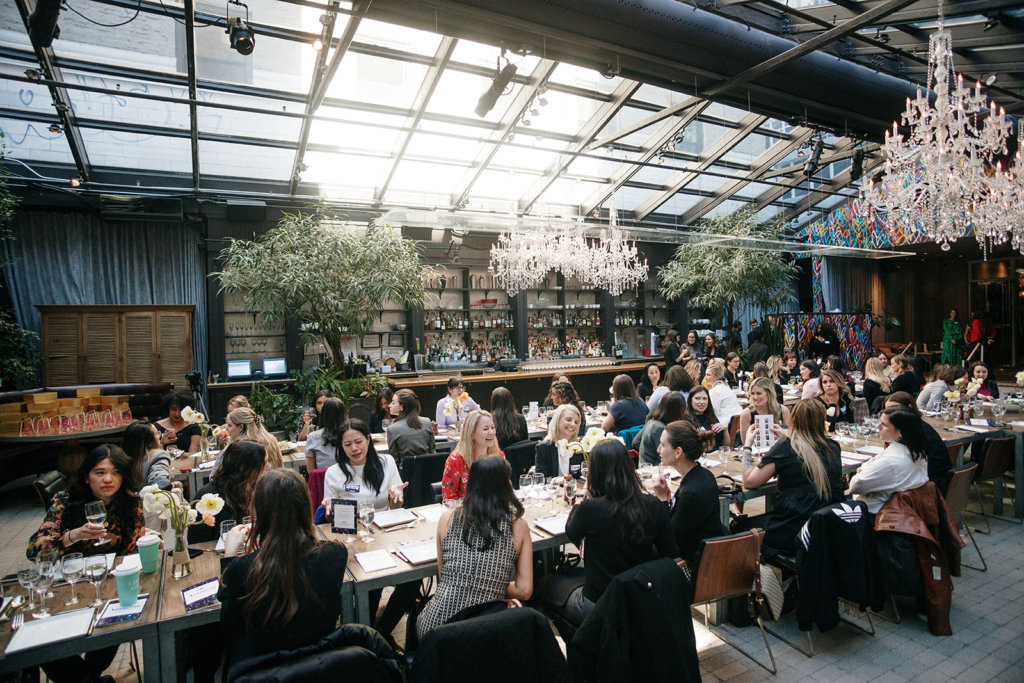
We then moved on to our first talk, “Fearless Founders,” moderated by Priya Rao, Executive Editor and Glossy Beauty Podcast Host at Glossy, and featuring Lillian Tung, Founder and CMO at body hair care brand Fur, as well as Suzanne Sinatra, Founder and CEO at vulvar care brand Private Packs.
The second talk, “Championing Diversity in the Workplace,” was moderated by Yotpo’s own Ashley Rosenthal, Enterprise Account Executive, and featured Alexandra Tanner, AVP of Digital Marketing & eCommerce at Color&Co (L’Oreal), and Laural Simeon, Sr. Director of eCommerce at Fila. All four of the speakers are also AWIE 2020 Honorees.
The topics covered ranged from breaking the stigma surrounding women’s healthcare, to amplifying traditionally marginalized voices in our industry, and much more. We rounded up some of the highlights below:
“Fearless Founders,” featuring Lillian Tung, Founder and CMO at Fur & Suzanne Sinatra, Founder and CEO at Private Packs
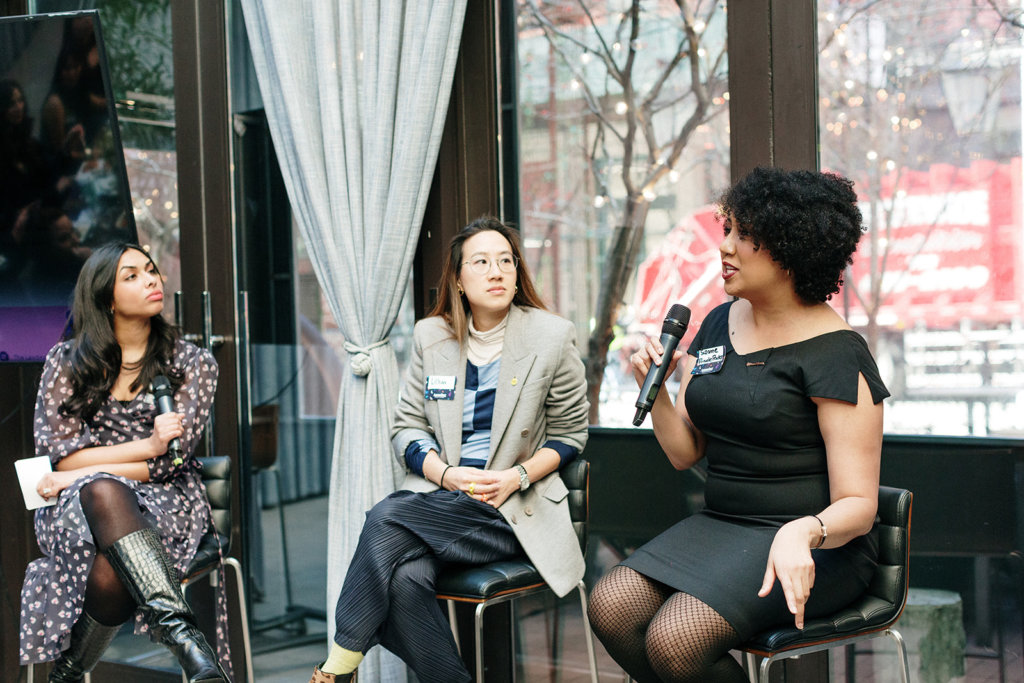
From left: Priya Rao, Lillian Tung, and Suzanne Sinatra
Both of your brands speak to something that had previously been taboo — how did the internet help with fostering community and getting the conversation going?
“The internet was a safe space — people could tell me what their problem was without revealing who they were. They could really tell me in detail about the pain that they were going through. You think when you go through issues ‘down there’ that you’re by yourself — you feel like you can’t even tell your mom or your auntie or other members of your female tribe. Because of the internet, women were able to share their experiences,” – Suzanne Sinatra
“The earliest adopters and biggest proponents and fans of our mission lived, breathed, and talked on the internet. We were all about fostering that conversation and that community. We’ve actually seen the conversation shift to becoming a much larger movement that’s truly taken on a life of its own,” – Lillian Tung
Given that your brands are both so women-centric, when you’re at a table with a board full of men [investors] how do you approach them?
“This space has seen a cultural shift. Between meetings that we were having around 2017 to more recently, there’s not as much, ‘this seems very niche,’ or ‘this is a women-only issue and thus it’s not a real issue.’ The conversation is more, ‘hey this is a real business, let’s talk real business questions, real business numbers,’” – Lillian Tung
“Moms are not the only ones who go through vag pain. It’s kind of a newsflash for the investors, and it’s my responsibility to educate them that there is a bigger market out there. Because I am the brand, I am the founder, I just share my problems and they get it. Every woman can relate to some time that they’ve had some pain down there. Genital pain does not just happen on the weeknights and on the weekends.
With the men that I had conversations with, they all remember when their wives gave birth. I play on that and use it to my advantage, because I know that they’re going to go home and tell their wives about it, and their wife is going to co-sign their investment,” – Suzanne Sinatra
“Championing Diversity in the Workplace,” featuring Alexandra Tanner, AVP of Digital Marketing & eCommerce at Color&Co (L’Oreal), & Laural Simeon, Sr. Director of eCommerce at Fila
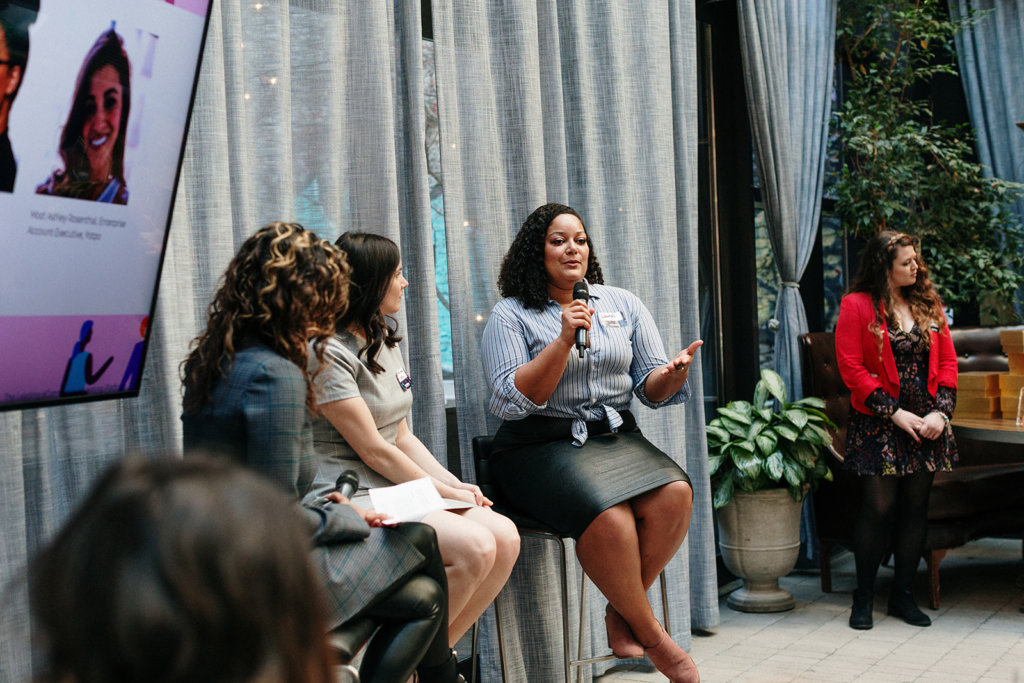
From left: Ashley Rosenthal, Alexandra Tanner, and Laural Simeon
What do you do to promote an inclusive culture at work as well as in your communities?
“Outside of work, I’m very involved in the LGBT entrepreneur space. I am the Programming Board Co-Chair of an organization called StartOut, which nurtures entrepreneurs, and gives them access to networking opportunities, capital, mentorship, and education. I am also an angel investor in Gaingels, which invests in LGBT-owned startups.
Internally, at L’Oreal, we’re a very LGBT-friendly company. I’ve been with the company nine years, and it was never something I had to hide about my identity. But there was never anything formal, in terms of employee groups. So a few years ago, I helped found ‘Out at L’Oreal,’ a group that includes LGBT employees and allies. Within the first year, we were able to make a huge amount of difference for employees, including changes to our benefits policies: changing ‘paternity’ leave to ‘parental’ leave, as well as adding fertility and adoption benefits,” – Alexandra Tanner
“I’m on the board for a charity here in New York called Summer Search, which focuses on mentorship. We help students from underprivileged backgrounds — the average family income is about 19,000 dollars a year — find sustainable support, and really help open them up to new opportunities and a new group of people to help them.
I was able to get one of the students from this group a job in my company. That really made an impact on me. One of the people from the group said, ‘You know, you really changed this person’s life. You opened a door that they otherwise wouldn’t be able to walk through.’
Internally, I’ve been a champion for starting conversations and being an ally who others can come to and talk about issues that they don’t feel comfortable going to anyone else about, because I do have a rapport with our upper management,” – Laural Simeon
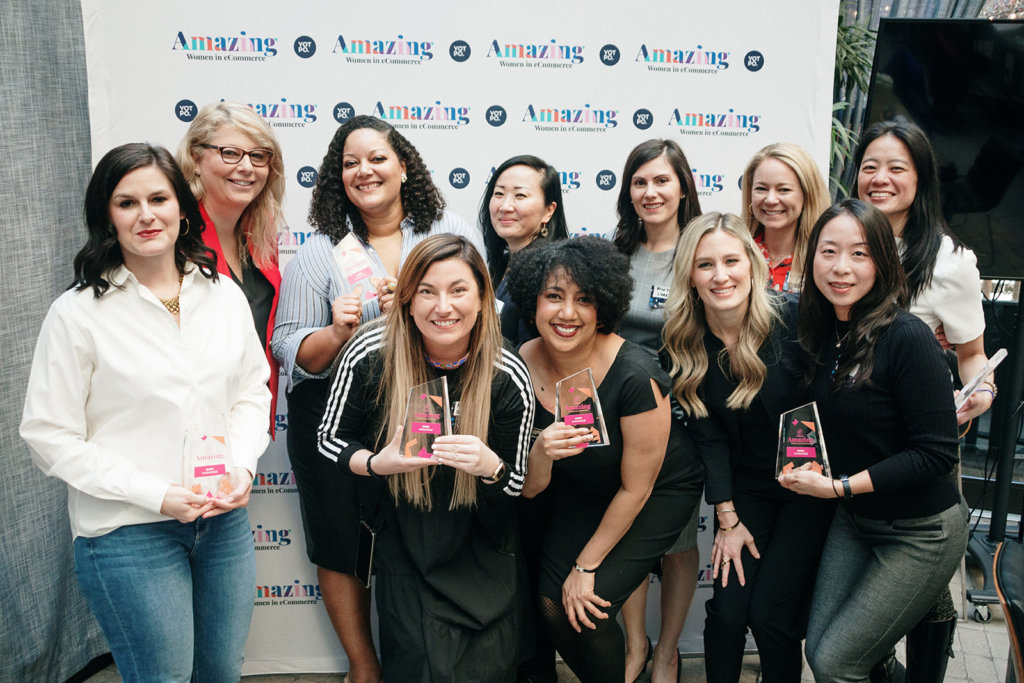
11 of the 20 Amazing Women in eCommerce 2020 Honorees
How have you handled speaking out in the workplace when you see something that is potentially offensive or not inclusive?
“One word that I really hate that I hate to use, especially as it relates to streetwear and footwear is ‘urban.’ It’s somewhat of a coded word, which I am personally offended by at times, because it denotes something negative about the people that you’re trying to get money from and market to. There needs to be more respect when you’re looking at streetwear and people of different cultures, which is why having voices that are inclusive within the company is so important,” – Laural Simeon
“If you see something, say something. If the marketing is not inclusive, if it’s demeaning towards women, if we’re not using the right gender pronouns — I am the first person to say, ‘This isn’t right, you could erase people, you are sending the wrong message,’” – Alexandra Tanner
For more information about our 2020 Honorees, as well as to sign up for the AWIE newsletter, check out our newly redesigned website. If you’d like to make a donation to Girls Inc. in honor of International Women’s Day 2020, click here.










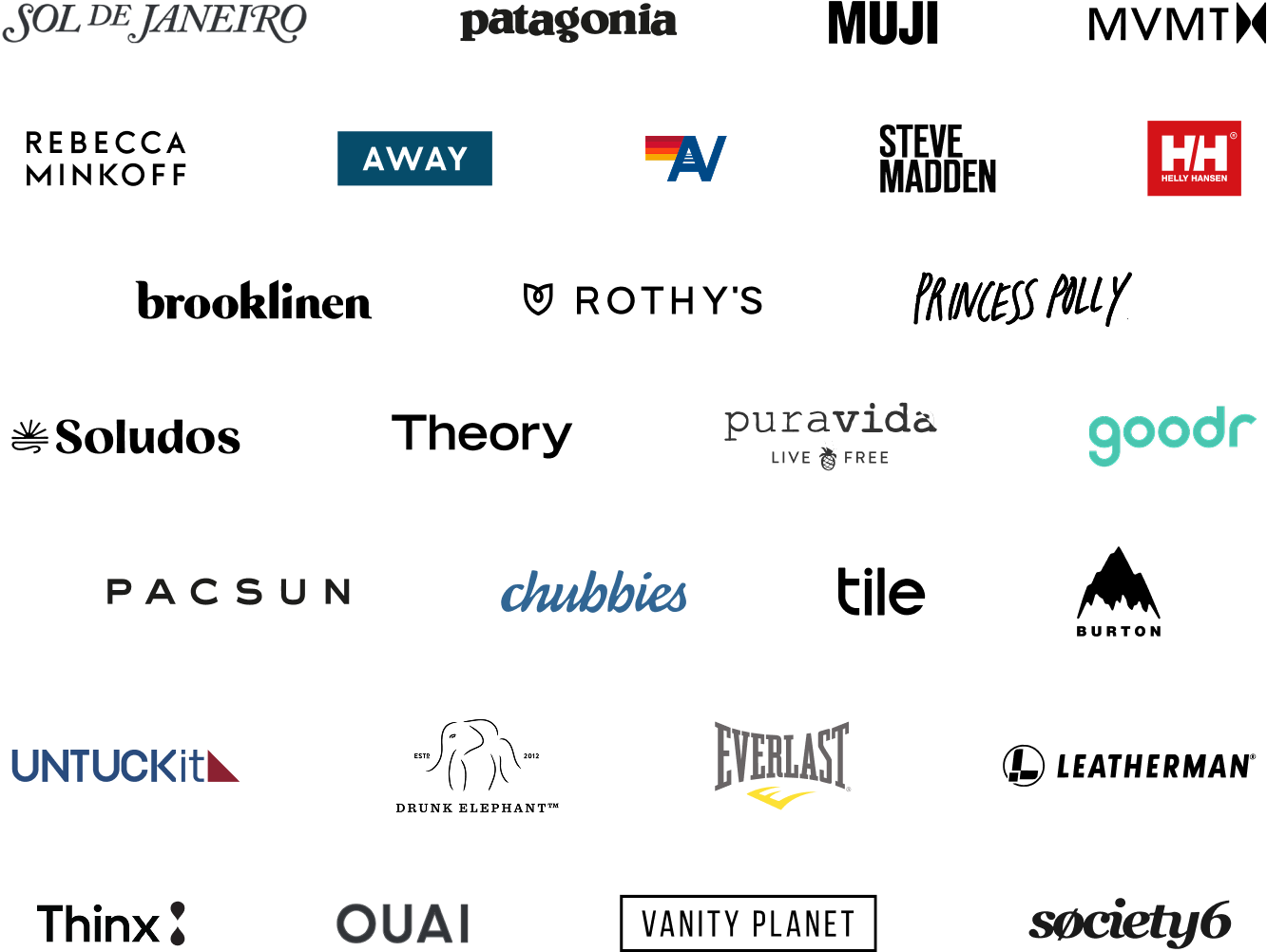



 Join a free demo, personalized to fit your needs
Join a free demo, personalized to fit your needs